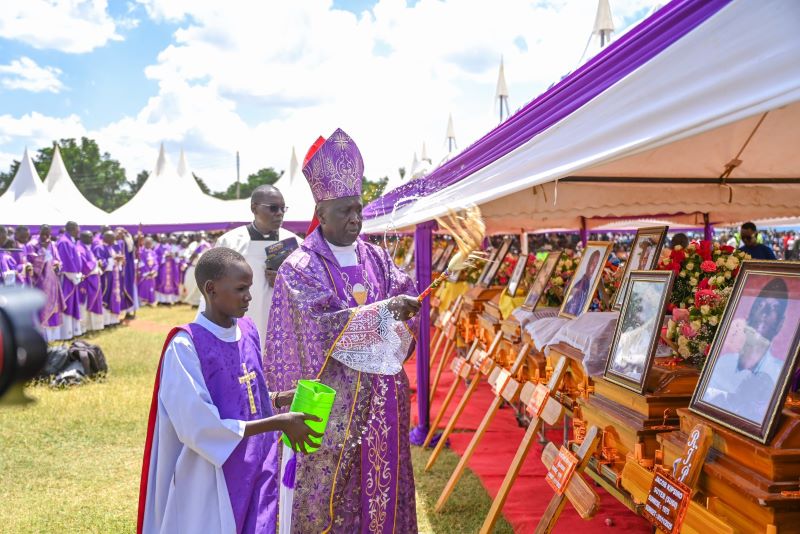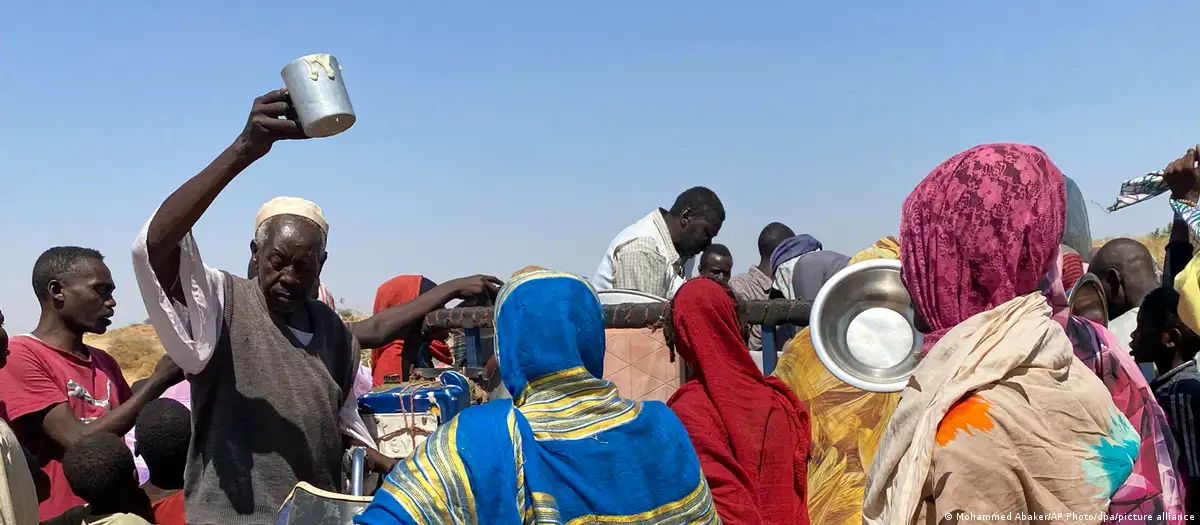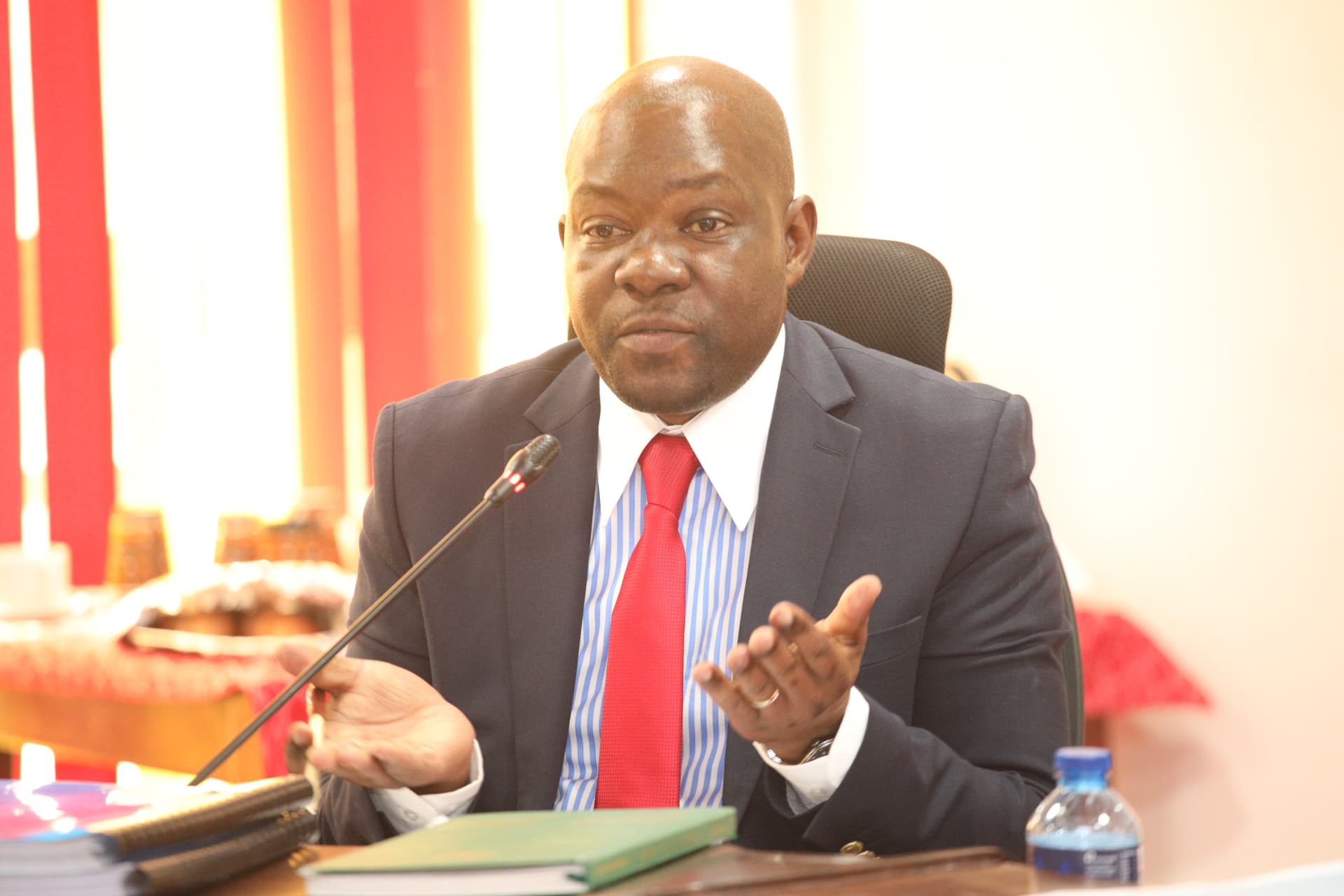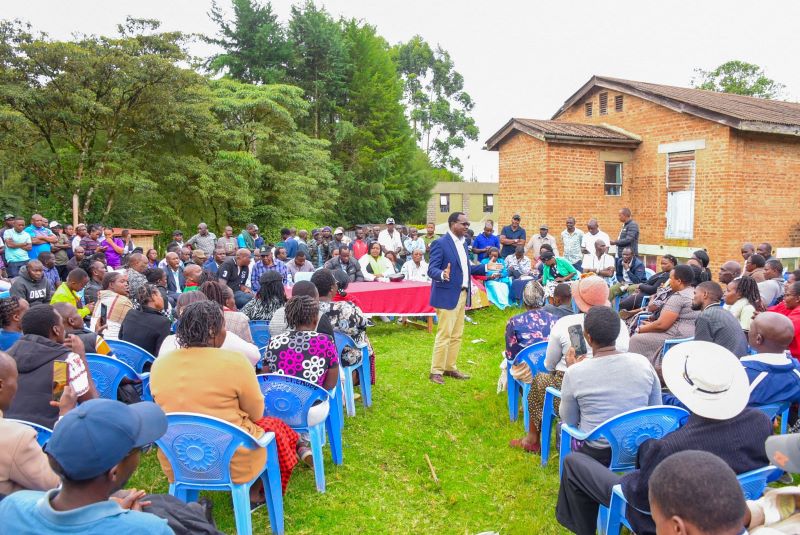316 Kenyans have died in Gulf countries since 2002 – Mudavadi
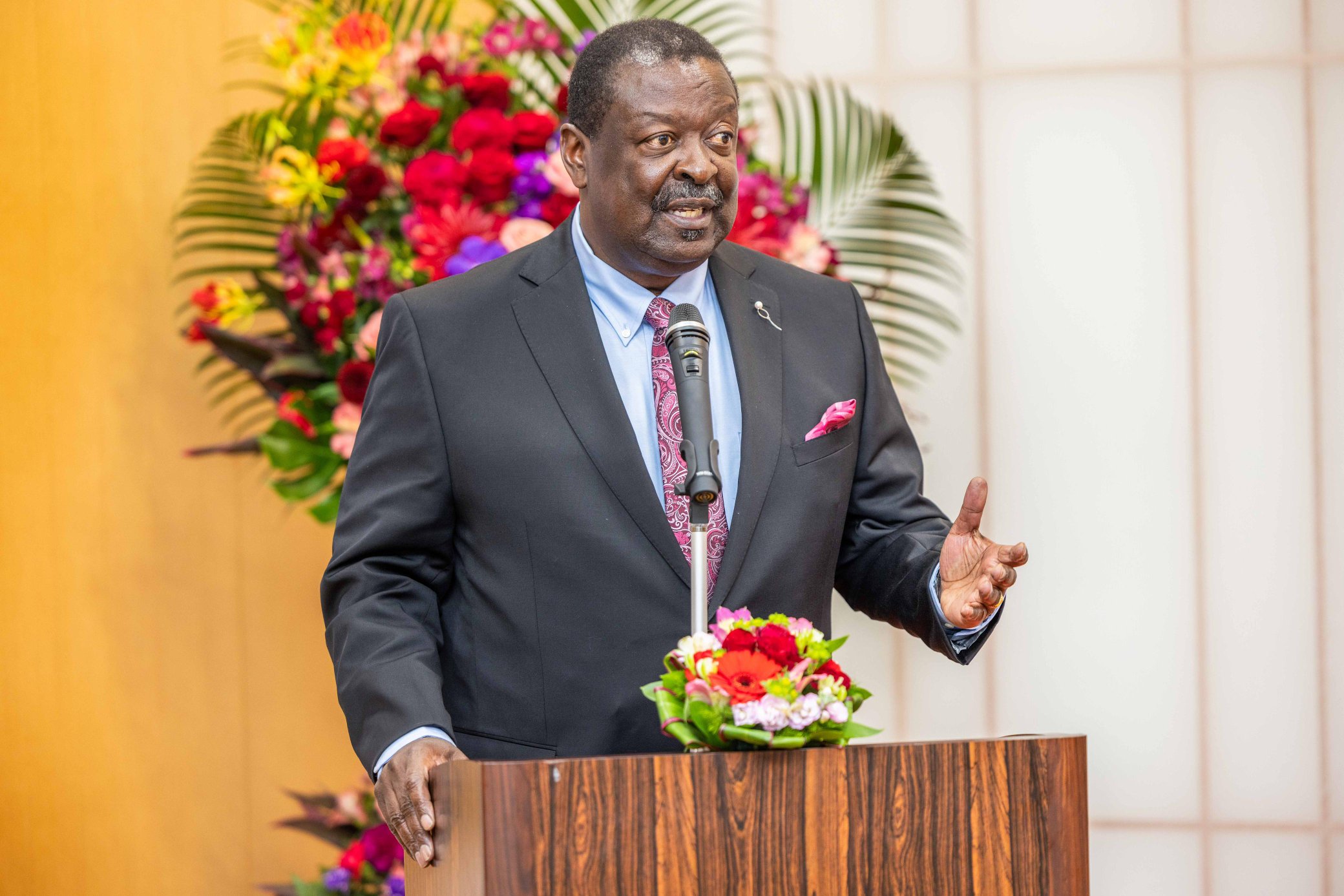
Saudi Arabia leads with 166 while 58 deaths were recorded in Qatar, 51 in the United Arab Emirates, Iraq 25, Bahrain 10 and Kuwait 6.
A total of 316 Kenyan migrant workers have lost their lives since 2002 in the Gulf Countries, Prime Cabinet Secretary and CS Foreign and Diaspora Affairs Musalia Mudavadi has revealed.
Appearing before the Senate on Wednesday during the weekly Question Time sessions, Mudavadi said that the deaths occurred only in six states, with Saudi Arabia leading with 166.
More To Read
- Government blames failed drug tests for delays in Kazi Majuu placements
- Over 3,400 Kenyans in distress reported in Middle East since 2023 - Mudavadi
- COTU urges Kenyan workers abroad to register with embassies for protection, support
- Kenyans warned against using tourist visas to seek jobs abroad
- Kenyan workers dying abroad are being buried without their families' consent, rights lobby warns
- Government announces crackdown on rogue agents targeting Kenyans seeking jobs abroad
Fifty-eight deaths were recorded in Qatar, 51 in the United Arab Emirates, Iraq 25, Bahrain 10 and Kuwait 6.
However, Oman and Iran had zero deaths of Kenyans.
Mudavadi took the Senate through steps the government takes upon receiving a report of the death of a Kenyan abroad.
“The first step that our missions do is to notify the family of the demise of their loved one. The ministry does this by liaising with the employer, the foreign recruitment and the local recruitment agent based in Kenya to establish information about the deceased,” he said.
Once the Foreign Affairs ministry gets the next of kin for the deceased, Mudavadi said they have a counselling department that offers psychological support to family members, including managing the information assessment counselling preparation for travel for a family representative or family member, and coordination with family members to receive the body of the deceased.
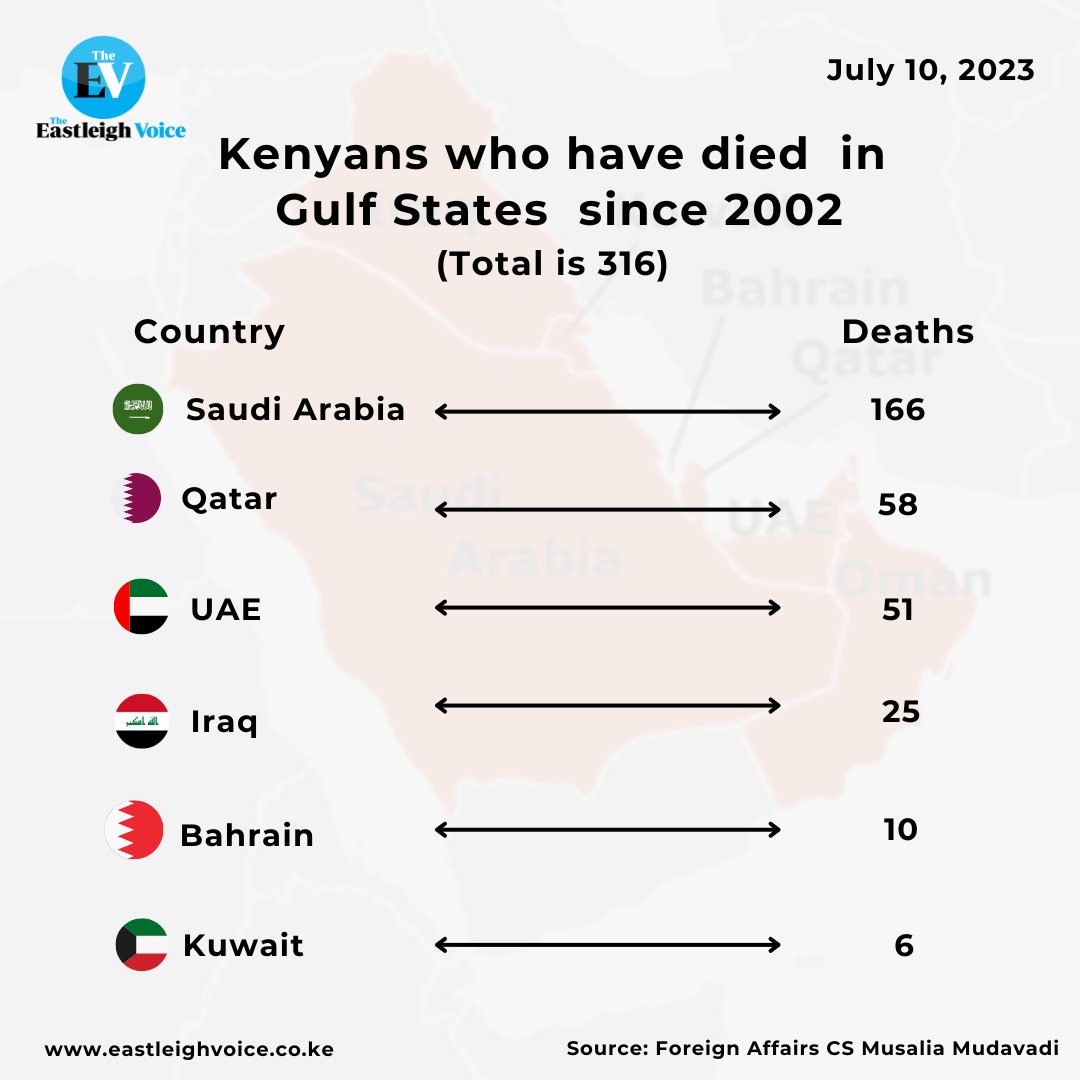
The CS also noted that the ministry also follows up on the benefits and entitlements of the deceased from their place of work per the applicable laws of the host country.
“The ministry also establishes the migration status of the disease, where possible coordinates with the employer, the government agencies, there are groupings, and other stakeholders in the family, while ensuring that the body of the disease is well preserved ahead of repatriation back home,” Mudavadi added.
The above includes issuing an objection certification for the body to be transported to Kenya.
The CS added that it is the work of the ministry to facilitate administrative procedures, including police investigations, if any, and the settlement of hospital and medical bills as appropriate.
“The ministry also coordinates with the disease family on arrival date and facilitates to receiving of the body where the disease is not employed, or stripped out of immigration status,” he added.
However, the CS said that the government has at least 19 MoUs in progress with the Gulf countries to set up rescue centres.
"As we speak, 19 MoUs are being negotiated. We are quite advanced with Qatar, United Arab Emirates, and Saudia and we have a rescue centre in Saudi Arabia," Mudavadi said.
Prime Cabinet Secretary @MusaliaMudavadi: The number of Kenyans who have died in the Gulf States from 2002 to date currently stands at 316 kenyans. #SenateLive #EyesOnSenateKE pic.twitter.com/ZqbO0xStAY
— Senate of Kenya (@Senate_KE) July 10, 2024
The CS said that some of the MoUs are at advanced stages while some are still in the early stages.
He added that the government is looking for resources to have the centres set up.
In addition to that, the Senate was told that at least 416,548 Kenyans are currently working in the eight Gulf states.
Leading with the highest number of Kenyans working in Saudi Arabia with 310,266.
Qatar comes in second with 66,025, followed by 23,000 Kenyans, Bahrain with 8,000, and Oman with 5,392 working Kenyans.
Also, 3,515 Kenyans are working in Kuwait, Iran with 200 and Iraq 150.
The Prime CS told the senators that it becomes difficult for the government to keep track of the above Kenyans working in the Gulf countries as not all of them are registered with the Kenyans missions.
Mudavadi also highlighted that some also move from country to country, which is also difficult to keep track of without registration.
"Kenyan in this territories exhibit high movement between various states. The numbers given therefore constitute periodic statistics derived from our missions in these countries further corroborated through official sources of the host governments,” he said.
"It should be noted that not all Kenyans register with our missions abroad despite being sensitised on the importance of such registrations hence sometimes it is difficult to have very precise data."
Top Stories Today
